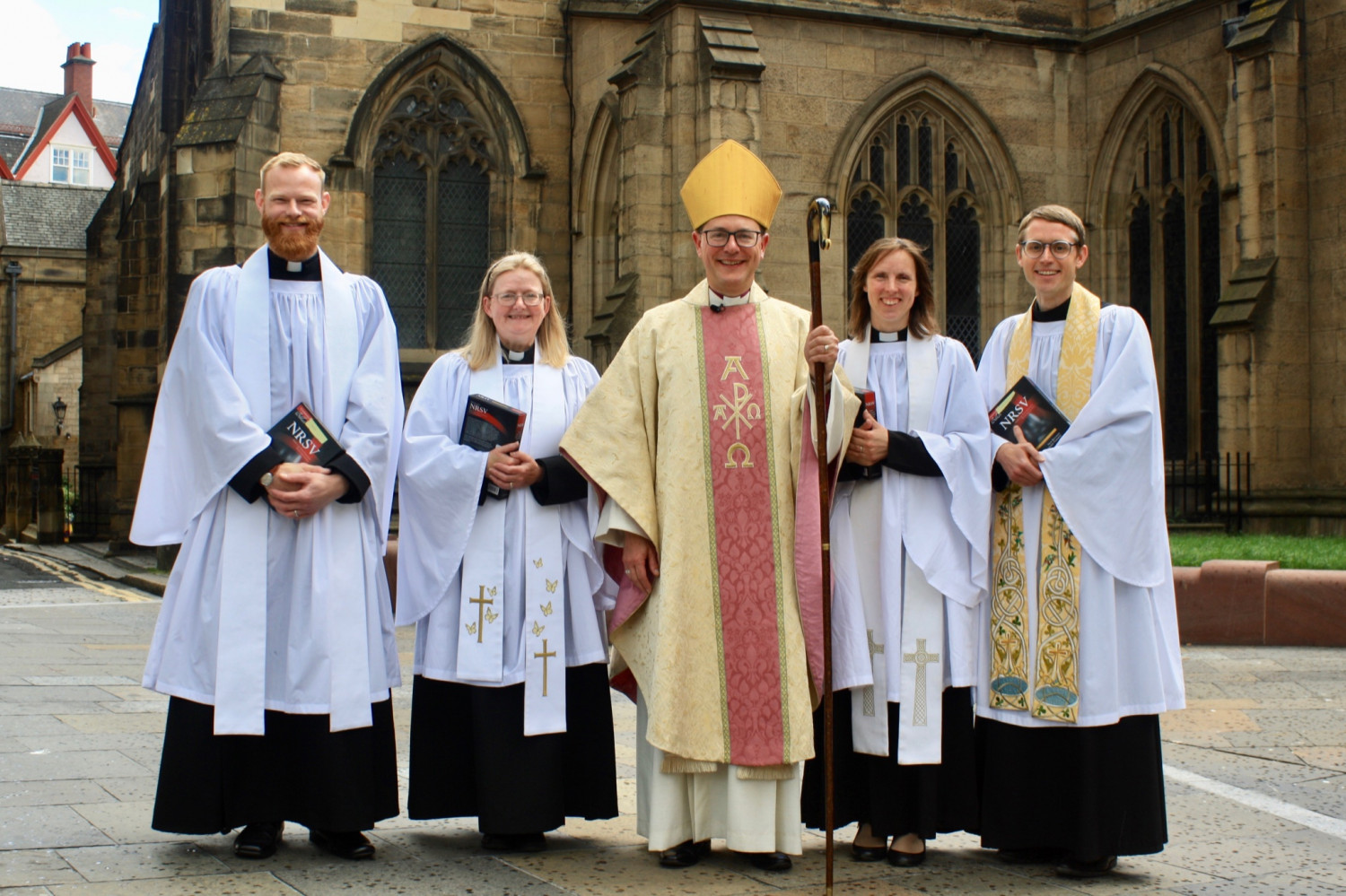 This section supports all those in ordained ministry, or those who may feel called to it. Explore the links in the side menu to find useful information, documents and contacts if you’re already a Priest or Curate in the Diocese of Newcastle.
This section supports all those in ordained ministry, or those who may feel called to it. Explore the links in the side menu to find useful information, documents and contacts if you’re already a Priest or Curate in the Diocese of Newcastle.
- If you would like to apply for Permission to Officiate, please contact m.tuckey@newcastle.anglican.org
- If you would like to apply for a one-off permission, please contact d.botha@newcastle.anglican.org regarding Safe to Receive
If you’re not ordained, but are thinking about exploring ordained ministry as a vocation, the following information may be helpful.
Vocations in ordained ministry
God calls a huge variety of people, men and women of all ages, from all kinds of backgrounds and walks of life, to work and witness as Priests in many different contexts within and outside of the Church.
Ordained ministries are therefore very varied. For some, their Priestly role is reflected in the shape of the classic Parish Vicar, while others are Chaplains in secular institutions.
Some are paid a ‘stipend’, others are self-supporting, including some in secular employment.
If this is a role that you are feeling called to, then do be in touch with your Parish clergy locally, who will be happy to have a conversation with you. They’ll help you explore whether this role is the best fit for you, and reflect with you on the joys and challenges of this calling as a first step to discerning whether God may be nudging you in this particular direction.
What does a Priest do?
These words, taken from the Church of England Ordinal, encapsulate the essence of what it is to be a Priest.
Priests are called to be servants and shepherds among the people to whom they are sent. With their Bishop and fellow ministers, they are to:
- Proclaim the word of the Lord and to watch for the signs of God’s new creation
- They are to be messengers, watchmen and stewards of the Lord; they are to teach and to admonish, to feed and provide for his family, to search for his children in the wilderness of this world’s temptations, and to guide them through its confusions, that they may be saved through Christ for ever
- Formed by the word, they are to call their hearers to repentance and to declare in Christ’s name the absolution and forgiveness of their sins
- With all God’s people, they are to tell the story of God’s love.
- They are to baptize new disciples in the name of the Father, and of the Son, and of the Holy Spirit, and to walk with them in the way of Christ, nurturing them in the faith
- They are to unfold the Scriptures, to preach the word in season and out of season, and to declare the mighty acts of God
- They are to preside at the Lord’s table and lead his people in worship, offering with them a spiritual sacrifice of praise and thanksgiving.
- They are to bless the people in God’s name
- They are to resist evil, support the weak, defend the poor, and intercede for all in need
- They are to minister to the sick and prepare the dying for their death
- Guided by the Spirit, they are to discern and foster the gifts of all God’s people, that the whole Church may be built up in unity and faith.’